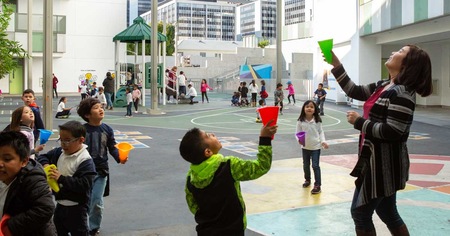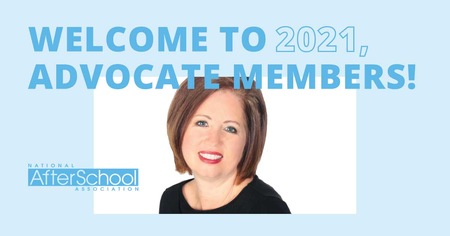A frequently asked question among my afterschool colleagues from 2000 – 2010: "Are you going to NAA this year?" I look back and wonder, "What we were thinking?"
NAA is an association; how do you "go" to it? Of course, we meant the convention; this was most of what we knew about NAA and an annual highlight—an opportunity to get outside our daily duties to network and learn with others in the field.
I didn't understand the explicit value of a professional association, yet knew it fulfilled my need to feel part of something bigger; to know there was a profession for educators outside of K-12 classrooms—a place to connect with other professionals. Over time, I began to understand the wealth of opportunity a professional association offers.
Associations are organizations that exist to further a profession, raise public awareness and protect professionals' interests. They are educational and informational; they define and set standards for their fields and promote high quality through awards and other recognition.
KEY NAA FUNCTIONS IN THE ASSOCIATION CONTEXT
Issue a code of conduct to guide professional behavior.
- Code of Ethics for Afterschool Professionals outlines the highest standards of integrity and honesty for professionals in their public and personal activities, to inspire public confidence and trust in the afterschool profession.
Define the profession, set and assess professional standards, recognize excellence.
- Core Knowledge and Competencies (CKCs) for Afterschool and Youth Development Professionals & Self-Assessment Tools—revised in 2016—describe the knowledge, skills and dispositions professionals need to provide high-quality afterschool programs. Competencies are concrete, observable, achievable standards of practice that strengthen the profession. CKCs can define professional development curricula, set goals and training outcomes, and design mechanisms for demonstration and assessment of a practitioner's skills (Vermont Northern Lights Career Development Center, 2005). CKCs provide guidance in career ladders, credentials and qualifications development, and other methods of assessing practitioner skill and knowledge (Center for the Study of Child Care Employment, 2008).
- Core Knowledge and Competencies (CKCs) for Afterschool Trainers—revised in 2017—support effective professional development by setting quality standards for trainers and facilitators working with afterschool professionals.
- Currently in progress, the National Professional Development and Credentialing System will develop and recognize afterschool professionals' facilitation skills, competency and self-efficacy through digital badge credentials in STEM and other content areas, such as literacy, social emotional learning, and healthy eating and physical activity.
- Most Influential in Afterschool and Next Generation of Afterschool Leaders Awards, established in 2014, offers national recognition of existing and emerging field leaders.
Define, set and assess program quality standards, recognize excellence.
- Quality Standards and Accreditation, created in 1998, were transitioned to Council on Accreditation (COA) in 2008; in 2017, standards were revised in partnership with COA. It provides afterschool programs with a quality roadmap and recognition mechanism.
- Healthy Eating and Physical Activity (HEPA) Standards for Out-of-School Time (OST), revised in 2018, offers evidence-based standards fostering the best possible nutrition and physical activity outcomes for young people attending OST programs.
Provide professional publications.
- The quarterly AfterSchool Today magazine is dedicated to supporting NAA members.
- Journal of Youth Development (JYD), the official journal of NAA and the National Association of Extension 4-H Agents, is an open-source, peer-reviewed, quarterly online publication dedicated to advancing youth development practice and research. JYD serves applied researchers and evaluators as well as practitioners who work in youth-serving organizations or supporting intermediaries.
Enable fairer access to the profession and provide career support and opportunities for students, graduates and people already working.
- In 2014, membership options were expanded to become more inclusive and increase access for the breadth of the afterschool field. A free, starter Ambassador Membership is designed for entry and developing afterschool professionals. Executive Membership is designed specifically to meet the needs of afterschool leaders seeking inspiration, connections, and opportunities to build or share knowledge.
In addition, NAA provides professional networks and support for continuing professional development through our communications channels, NAA Annual Convention, Virtual Convention, Leadership Fellowships and Institutes, and more.
As NAA moves through the 21st century, we know things will change. We will future-cast, plan for our profession and guide the field. And we expect one thing to remain the same: People will want to network and be part of a community—something larger than themselves they can connect with.
Creating a community of professionals has been—and will always be—NAA's strength.
Written by Heidi Ham, Vice President of Programs and Strategy, National AfterSchool Association.




